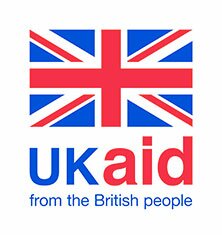We spoke to Connie Alezuyo, the Secretariat Coordinator for Uganda’s Education Response Plan for Refugees and Host Communities (ERP), to learn more about her role and the government’s education response during the COVID-19 pandemic. The ERP runs from 2018-2021 and focuses on delivering education services to children and adolescents living in refugee settlements and surrounding host communities.
How has Uganda’s lockdown affected refugee communities?
When I think about what COVID-19 has meant for refugees, I think about funding for humanitarian and development programming [for the education sector] and about individual livelihoods. Refugees are usually able to find casual paid work to supplement their incomes, but with the lockdown they are unable to work. So where is your livelihood? What can you do? Where can you go? COVID-19 has also created a big strain on already limited resources for refugee programming, and humanitarian aid funding is pivoting, even for education. It’s a difficult balance.
What opportunities and challenges exist for providing education to refugee and host community children in Uganda under the COVID-19 response and recovery phases, when schools are closed or just beginning to reopen?
I think one of the things that the COVID-19 emergency has provided is the proliferation of remote learning technologies and opportunities during the response phase. Remote learning technologies will continue to be important for the recovery phase. When we talk about recovery, school openings will be staggered and it will be some time before everyone is back at school. We are exploring whether it is feasible for teacher training colleges to provide extra support to teachers through remote learning and training. These are huge and exciting opportunities.
But there are also huge challenges to address related to inequality [in accessing remote learning], especially for the most vulnerable. How can remote learning be adapted to meet their needs? If vulnerable children stay out of school for a long period, their vulnerability can increase and they are more likely to drop out.
We have seen gains in access to education and ensuring children stay in school. But with the COVID-19 lockdown, Uganda’s largely informal economy and with many parents struggling to get food, I worry these gains will be lost, as some children will need to work to support their households. Many refugee children were in vulnerable situations before, and COVID-19 has really compounded this vulnerability.
Given this, what opportunities can be leveraged to improve education access and quality in Uganda so that more children can continue learning?
Uganda’s education structure, both for refugees and the overall population, is very exam driven – it’s all about marks and finishing the syllabus. I think COVID-19 can provide an opportunity to bring learning back to where it should be so that we equip children with the skills they need for daily living, improving their livelihoods, and becoming better citizens.
Parents, because of COVID-19, can become more engaged and involved in their children’s learning. We spend a lot of time in refugee and rural settings sensitising parents on the importance of education and being actively involved in their children’s learning. I am hoping that COVID-19 can become a catalyst for reforming Uganda’s curriculum and bringing about greater parental involvement.
What are the biggest challenges facing Uganda related to reforming the education sector and service delivery to refugees following COVID-19 lockdowns?
I think the biggest challenge, still, is providing an education to the high number of refugee children who need it. Additional school infrastructure has helped, but the pupil to teacher ratio is still way above the recommended target, meaning classrooms are crowded and distancing is difficult. Then, there is the possibility of a second or third wave of coronavirus infections once children go back to school and restrictions ease, so we need to think creatively to make sure learning continues to take place if schools close again.
If you were going to share one important message about Uganda’s education response with the global community, what would it be?
That is a tall order! I think I can zero it down to the need for strong coordination and communication.
I have learnt first-hand the benefits of supporting effective coordination efforts for different stakeholders under the ERP – not just at local and national levels, but also regionally and globally. We have been able to share our experiences through our coordination efforts, which enables us to address challenges in an informed way. If someone you know has walked a mile already, you are wiser starting that second mile using their knowledge rather than starting from scratch.
Regarding communication – I don’t know whether to call it confidence or courage – but it’s important not to panic, to take time to reflect and to acknowledge the little steps. This helps empower us, even if we took a step backward in order to move forward. I think acknowledging that, and drawing strength and courage from that process, is useful; it helps us make progress one small step at a time.
Thank you for your time today and work you are doing on the ERP! It is so important, especially in this COVID-19 era.
You are welcome. It is a privilege. I often remember the first time I interacted with refugee children from South Sudan in 2016 and introduced them to where their school would be. They clapped and danced with joy, even though it was not yet a built structure. That picture has never left my mind, they were so animated and interested. For me, this motivates me more than anything in the world.
For more information about what the Maintains education team will be carrying out over the next three years in Uganda to provide lessons and support for educational policy and shock responsiveness, click here.



